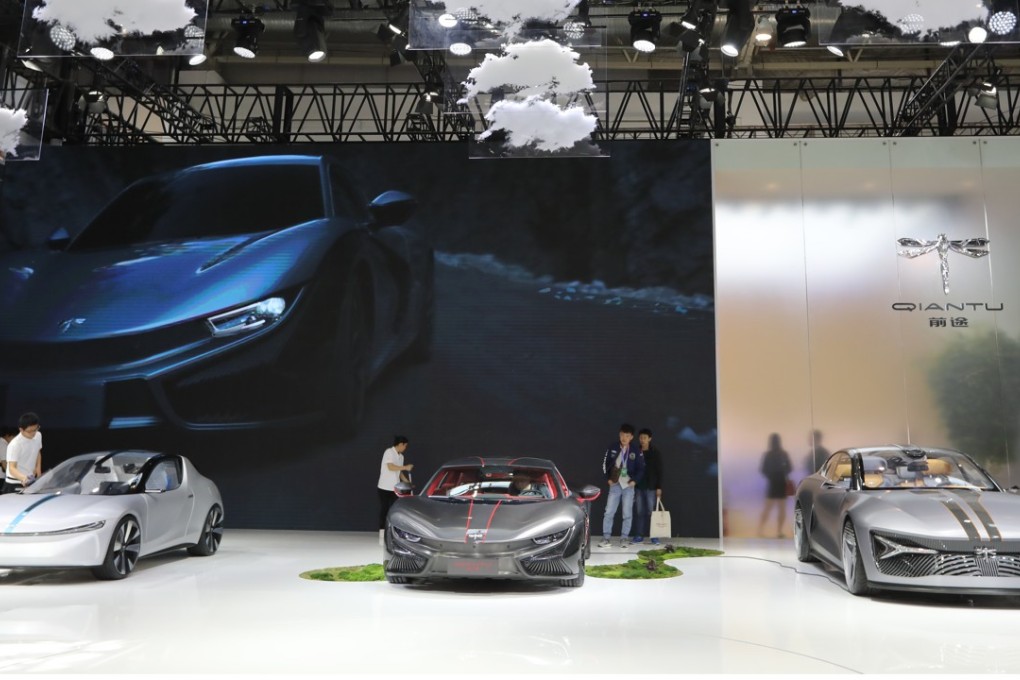Smart, self-driving and electric: China’s vision for the car industry on full view at Auto China 2018 show in Beijing
By 2020, one in every two new cars sold in China, the world’s largest car market, will be an intelligent one

Basking in the spotlight of the world’s media, Chinese carmakers are no longer shy about counting themselves among the world’s mobility disrupters, with their ambitions to forge ahead in the development of electric, intelligent and autonomous vehicles.
At the Auto China 2018 show in Beijing this week, the exhibition halls were abuzz with announcements and discussions about making intelligent vehicles for Chinese drivers, a field the Chinese government has stated it plans to dominate over the coming years.
“The marriage between cars and the internet is generating a new driving force for the sector,” said Wang Xia, chairman of CCPIT Automotive Committee, the organiser of the Beijing show, which runs until May 4. “New products including electric vehicles, intelligent connected cars and self-driving cars are being completed amid the impact from disruptive technologies.”
Already the world’s largest car market, China aims to become a “car superpower” over the coming decades, planning to own several top 10 electric carmakers by 2020 and to spearhead the use worldwide of smart connected vehicles by 2025, according to guidelines published by the Ministry of Industry and Information Technology on Wednesday.
The country’s market for electric vehicles (EV) is already growing quickly. In 2017, 777,000 EVs were sold in the country, up 53 per cent over 2016 and accounting for 2.7 per cent of overall car sales of 28.9 million, according to China Association Of Automobile Manufacturers. The government wants environmentally friendly vehicles to account for a fifth of total sales by 2025.